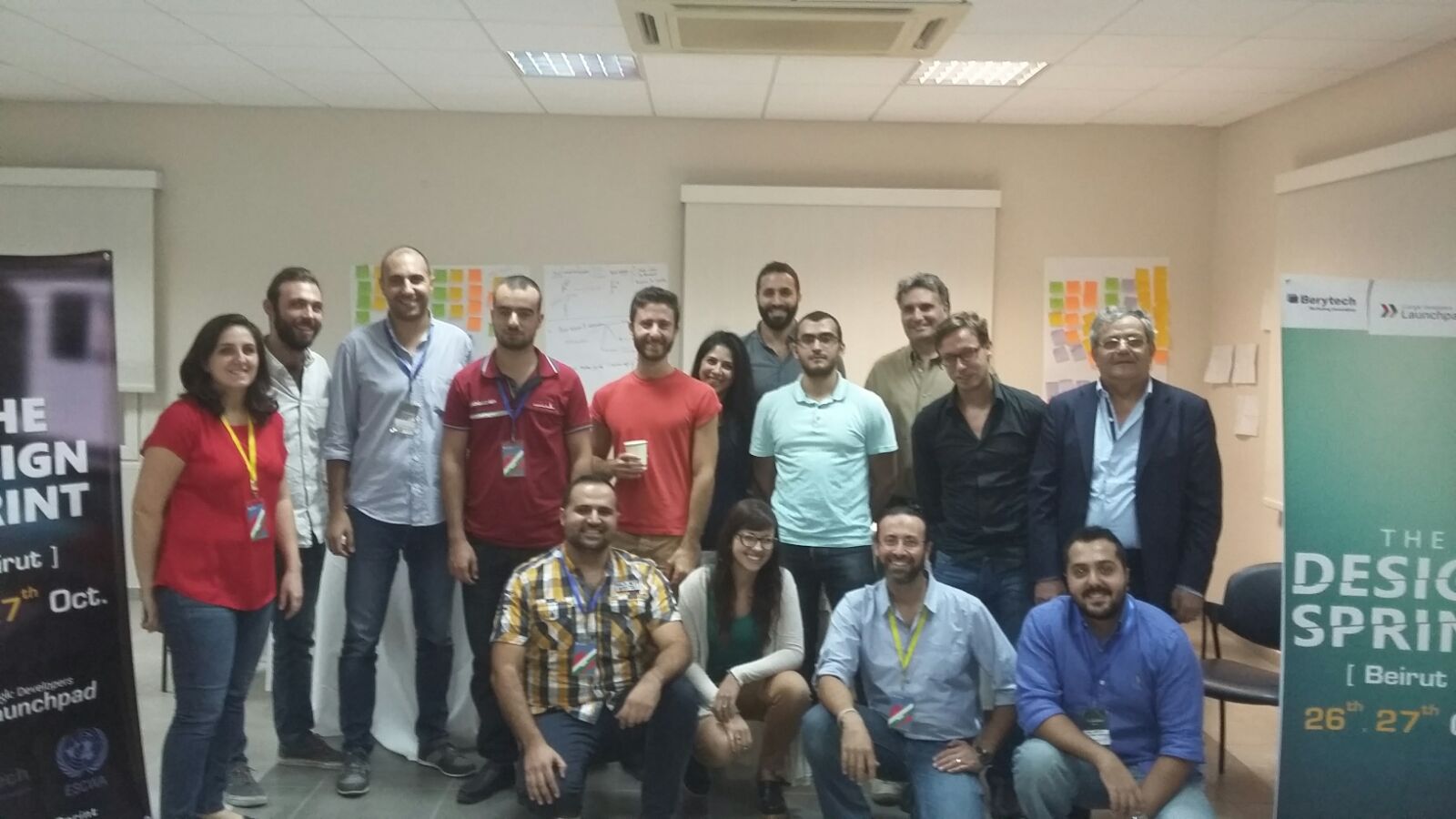Developed at Google Ventures Ideo and Stanford D. School, Design Sprints are a framework for teams of any size to solve and test design problems in 2 days, being the “greatest hits” of business strategy, innovation, behavior science, design thinking, and more — packaged into a tested process that any team can use.
The Google Beirut Design sprint was organized and hosted by ESCWA, Google Launchpad and Berytech on the 26th and 27th of October 2015 gathering a key selection of startups and SMEs.
In his foreword, Mr. Nawar Al-Awa, regional advisor for UN-ESCWA, highlighted the activities of the Technology for Development Division (TTD) in encouraging innovation and technology initiatives and projects in the Arab world and wished all participants from startups and SMEs a successful and fruitful event.
Trainers Katie Koepfinger, interaction designer and creative technologist, and Waleed Fahmy, UX/Interaction designer, launched the 2-day workshop with a series of guided exercises that would allow the participants to determine the challenge that they will be addressing during the sprint.
“I’ve done a sprint before but never with my team. It helped us understand our different perspectives of the same challenge,” says Mr. Elie Habib co-founder of Anghami the leading music-streaming platform in the Middle East with more than 16 million users to date.
Author, blogger and serial entrepreneur, Mr. Bob Debbas was invited to mentor the participants during their sprint. He emphasized the importance of creating a captivating user experience: “Having a wonderful application is a pure intellectual bliss. However, you need a number of engaged and returning users to start making money.”
For Mr. Georges Rehbane, co-founder of DayCareChannel, the biggest challenge that faces his one-year-old application that was able to reach 10% of its defined user market during this short period, is the barrier created by day care owners to reach the end user: the parent. The decision to adopt the application in any day care is influenced by referrals from other users, the fear from the novelty of the application, and the misconception that the application can be quickly and cheaply replicated.
By the end of the first day, challenges pinned by participants ranged from designing a better user experience, to better understanding the user profile, to initiating automatic downloads and attracting digital influencers.
Trainer Waleed Fahmy was positively surprised by the dynamism of the 6 teams: “Participants are serious and smart and they are burning their essence down to do this. The output surpassed my expectations.”
Mentor Charbel Jamous pointed at how setting time restrictions amplifies the thinking process and filters it down to the ideas worth addressing thus confirming the principles of a design sprint: to shortcut the usual endless-debate cycle and compress months of time into a couple of days. Instead of waiting to launch a minimal product to understand if an idea is any good, teams get great data from a prototype. The sprint gives these companies a superpower: The ability to build and test nearly any idea in just 2 days.
For Mr. Rabih Hassouany, owner of Hyppokrate global medicine reference system, and his team, the design sprint workshop confirmed that their application is already designed within google’s design recommendations. They spent day 2 of the workshop prototyping a new user profile format to add to their application in addition to a previously non-existent location service – creating a more rounded user experience.
At the end of the workshop, participating startups and SMEs were able to:
- Unpack a business problem, sketch competing solutions, turn it into a testable hypothesis and hammer out a high-fidelity prototype to be able to test it with real live humans.
- Understand that the real challenge is not the goal that you have set for your company but whatever is preventing you from reaching it.
- Take away the methodology of the sprint and use it with their teams when they have to tackle problems in the future.
- Put forward the importance of user research on the whole product.
Find more more pictures of the sprint here.
For information on upcoming workshops, competitions and events visit www.berytech.org and follow Berytech on Facebook and Twitter.








